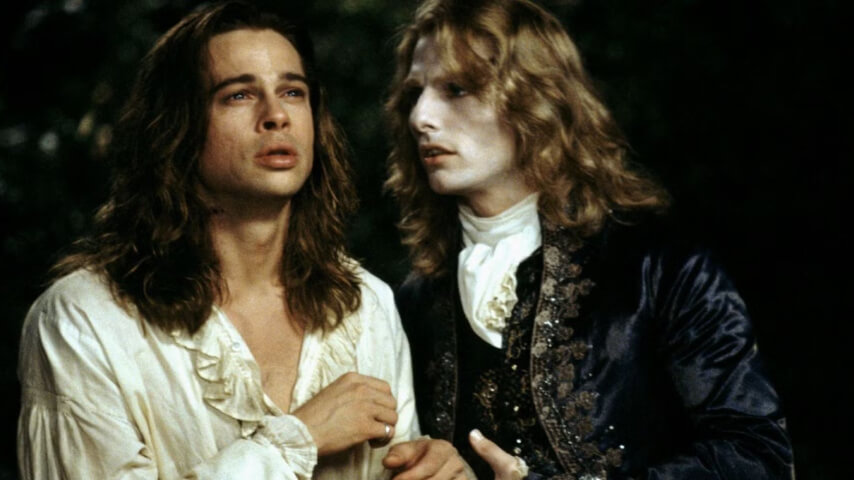Interview With The Vampire still enthralls and inspires at 30
For three decades, the Anne Rice adaptation has helped define how media interprets the eternal creatures of the night.
Photo: Warner Bros.
Vampires never die. Not even sunlight and garlic can quash the enduring appeal of one of the most famous supernatural creatures in our mythological lore, especially when it comes to pop culture. For as long as cinema has existed, vampire movies have swarmed the screen, each offering a different representation of the mythic bloodsucker. The malleability of their mythos has allowed them a kind of thematic flexibility not afforded to, say, zombies (sorry, The Walking Dead). Vampires represent anything and everything, often absorbing the ideas and ills of their given era. Just when it seems as though the cultural backlash may be forming against vampires, they become relevant once again.
The 2020s have seen a real resurgence in vampiric storytelling: comedies like Renfield, gonzo horrors such as Abigail, the melancholic coming-of-age tale Humanist Vampire Seeking Consenting Suicidal Person, and too many sexy romantasy novels to mention. The most prominent example is AMC’s long-awaited adaptation of Anne Rice’s Interview With The Vampire, bringing to life in stunning detail the iconic novel that birthed generations of vampiric fans. Few vampire novels have had the cultural impact that Rice’s debut inspired. Aside from Dracula himself, there may be no vampire more influential and iconic than the brat prince Lestat de Lioncourt, who reinvented the image of the creature into a loquacious and oft-tormented lover who playfully toyed with ideas of power, gender, and desire. He did not merely inspire on the page. Three decades ago, he dominated the big screen too, and changed how the vampire was seen for a whole new generation.
By all rights, Neil Jordan’s 1994 adaptation of Interview With The Vampire shouldn’t have worked. It’s an achingly earnest queer romantic drama released in the midst of Gen-X cool and at the tail end of the AIDS epidemic. Aside from Coppola’s take on Bram Stoker’s Dracula three years prior, the vampire genre hadn’t exactly flourished at this time. Every role was miscast, most notoriously that of Lestat himself, who was played by Tom Cruise. That decision was so controversial that Rice spent months letting the world know she disapproved of it, famously saying that Cruise was “no more my vampire Lestat than Edward G. Robinson is Rhett Butler.” (He was far too short!) And yet the film is delightful: a delicious melodrama of queer angst and the fight to understand what makes us human.
 Keep scrolling for more great stories.
Keep scrolling for more great stories.
